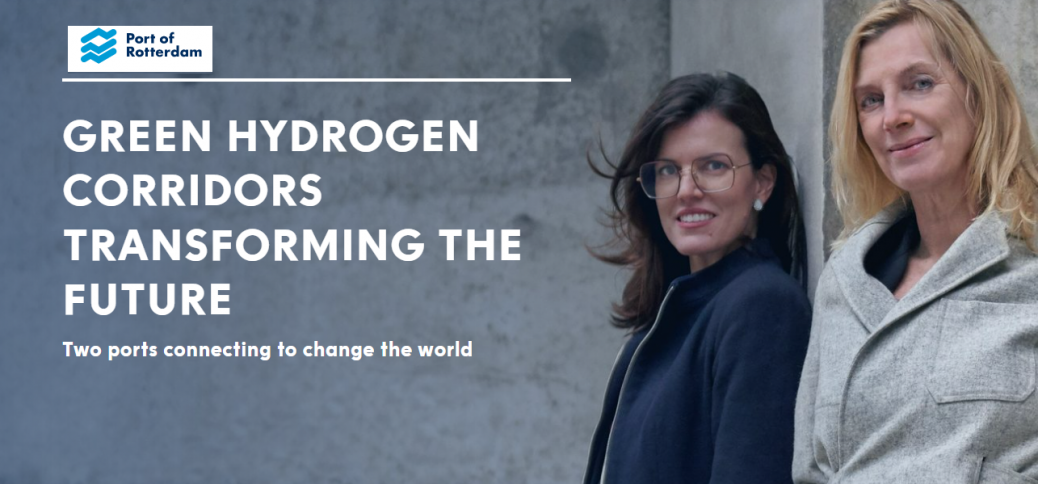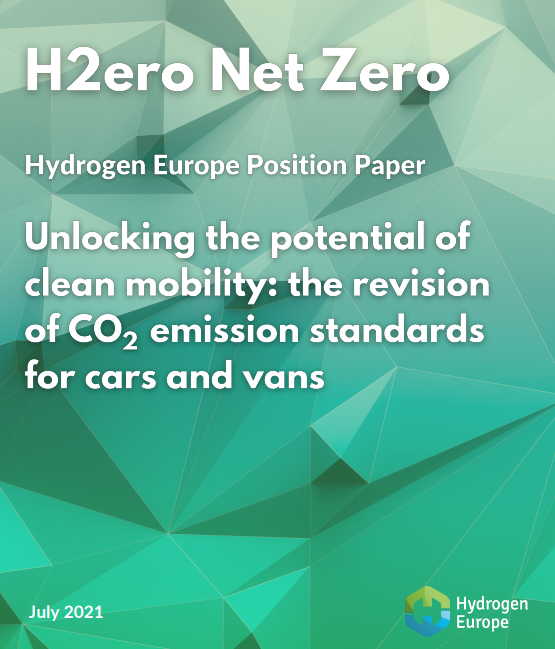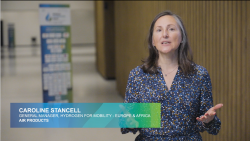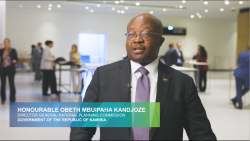Article First published: 16 February 2022 on Port of Rotterdam Website as part of the Port of Rotterdam Magazine
To make the energy transition a success and actually realise zero-emissions, new energy sources are indispensable. Hydrogen, and especially green hydrogen – from renewable energy sources – is considered to be one of the key energy carriers for the future. The Port of Rotterdam Authority has been conducting studies and developing projects in various countries, working with private and public parties on the prospect of creating hydrogen corridors to Rotterdam. One of the key projects for Rotterdam is the work being done together with Pecém Industrial Port Complex in Brazil, where Port of Rotterdam Authority is a 30% shareholder.
Northwest Europe uses more energy than it can sustainably generate on its own. Energy imports will therefore continue to be necessary in the future. To become carbon-neutral, hydrogen and hydrogen derivatives will have to be imported on a large scale. It is estimated that by 2050 up to eighteen million tonnes of green hydrogen will be imported into north-western Europe via Rotterdam. “These are enormous quantities because we have to replace not only the current use of grey hydrogen with hydrogen from renewable energy, but also some of the current uses of natural gas, oil, coal and such. It really is a huge transition”, says Monica Swanson, Program Manager International Hydrogen Corridors at Port of Rotterdam.
Importing hydrogen
The port of Rotterdam strives to be the number one port for the import of sustainable energy and wants to play a key role in the import and transit of hydrogen. It is keen to co-operate with other ports and is exploring the possibilities of importing hydrogen from countries where it can be produced cost-effectively. This has resulted in over eighty connections with projects in the most likely exporting countries. And the number is still growing. “We look at countries that have a strategy for the production and export of hydrogen; that have sufficient renewable energy sources such as wind, solar, hydropower and geothermal. We look at the stability of the country; the ‘ease of doing business’; the quality of the infrastructure, jurisdiction and so on”, Swanson explains. “We obviously also look at how realistic production plans are. And, more importantly, whether there are opportunities to scale up. After all, large projects are needed to meet the world’s energy needs. If pilots are done without the aim to develop them into large projects, green production will remain a drop in the ocean.”
Brazil is one of the countries that are likely to become exporters of green hydrogen. In Brazil the Port Authority has ‘boots on the ground’ in the north-east, in, one of the best regions in Brazil for renewables from wind and solar. “We have a joint venture with the state to manage the Pecém Industrial Port Complex. This co-operation and the fact that there is ample space for development in the industrial zone, allows us to respond relatively quickly and actively attract companies and customers”, Swanson continues.
Green Hydrogen HUB
In February 2021, Pecém announced its ambition to become a world player in green hydrogen. Together with the state government, the Federal University of Ceará (UFC) and the Federation of Industries of Ceará (Fiec), the Ceará Green Hydrogen HUB was established. “That multidisciplinary approach is what makes the difference”, states Duna Uribe, Executive Commercial Director at Pecém Industrial Port Complex. “It makes it easier to face challenges and to find and realise the optimum.”
Read more of this article in the Port of Rotterdam Magazine.
DO YOU WANT TO KNOW MORE ABOUT GREEN HYDROGEN?
Meet Monica and Duna during the World Hydrogen Summit & Exhibition. Register your place here.
To find out more about the hydrogen projects in the Port of Rotterdam, please visit their hydrogen page.
Tags: ammonia clean hydrogen energy transition Europe's Hydrogen Hub green hydrogen hydrogen carriers hydrogen corridor ports shipping trade World Hydrogen Congress World Hydrogen Summit








